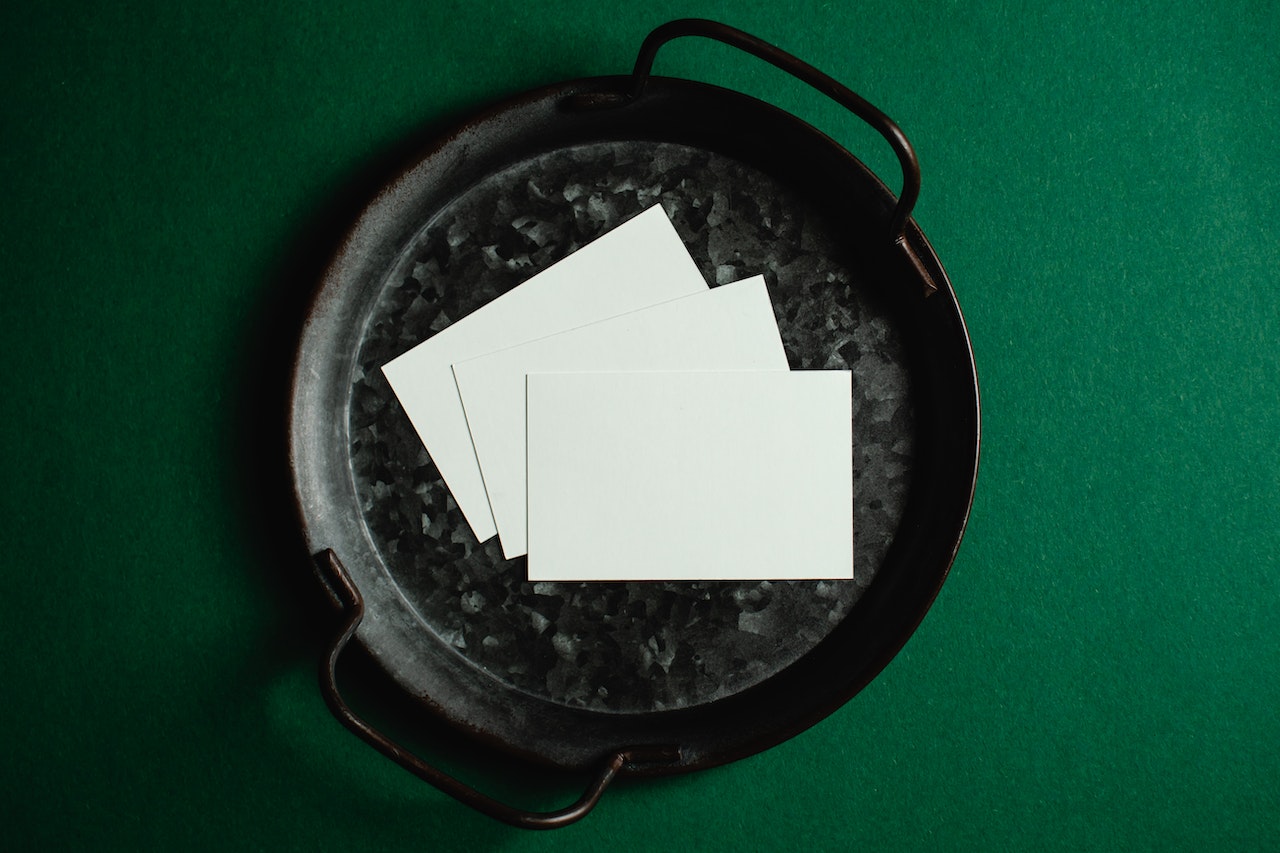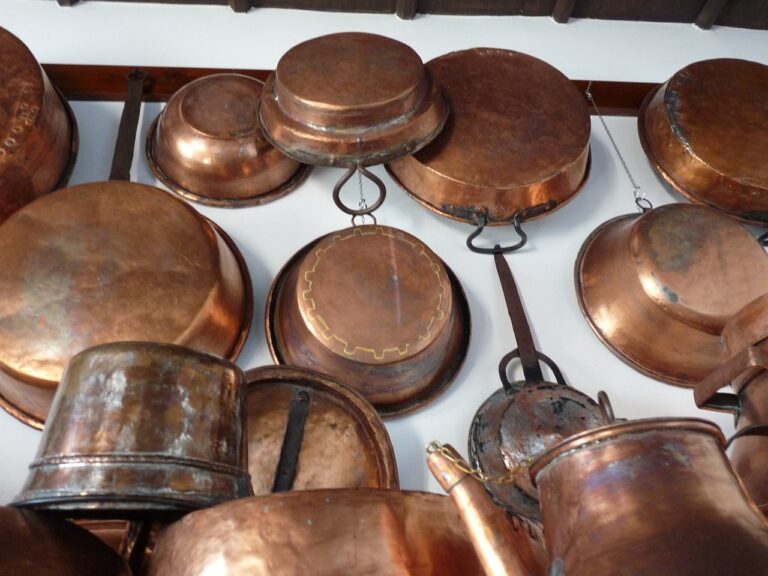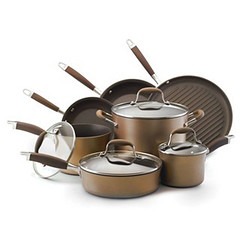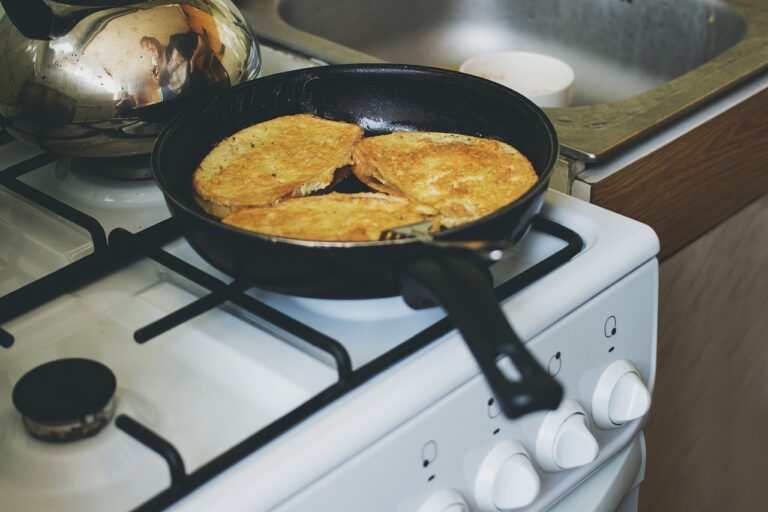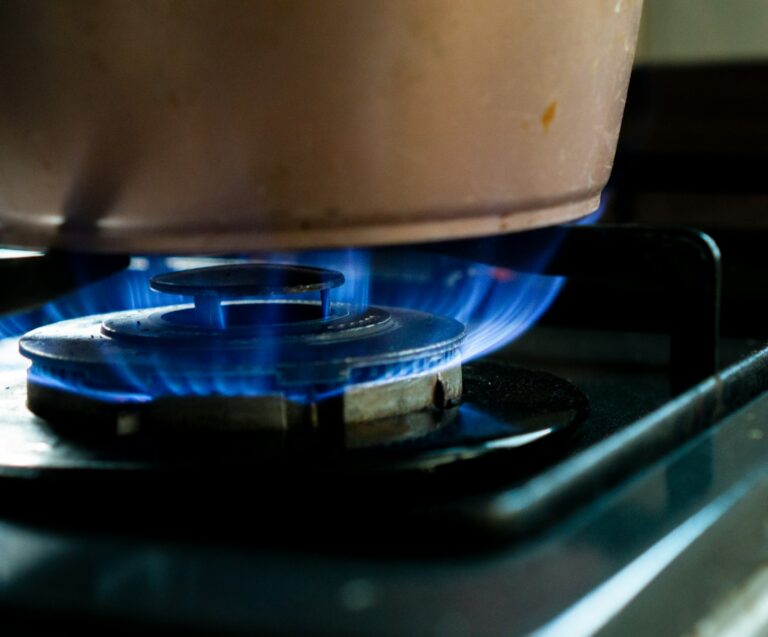Washing cast iron pans – a culinary conundrum. Are there benefits to washing them, or am I risking damage by doing so?
In this article, we’ll explore the science behind cleaning and seasoning cast iron pans and address common misconceptions. We’ll also discuss alternative cleaning methods and how to deal with rust and stains.
So if you’re as curious as I am about the best way to care for your cast iron pans, keep reading!
Key Takeaways
- Washing cast iron pans helps remove leftover food particles and prevents the buildup of bacteria.
- Seasoning is crucial for maintaining a non-stick coating and preventing rust on cast iron pans.
- Using soap sparingly or avoiding it altogether can help preserve the seasoned flavor of the pan.
- Proper drying and applying a thin layer of oil after each use are essential for preventing rust and maintaining the pan’s optimal cooking surface.
Benefits of Washing Cast Iron Pans
You should definitely wash your cast iron pans because it helps to remove any leftover food particles and prevent the buildup of bacteria.
When you cook with a cast iron pan, it absorbs flavors and becomes seasoned over time. However, this seasoning can also trap dirt and grime if not properly cleaned.
By washing your cast iron pans, you ensure that any remnants of food are removed, making your next meal taste better without any unwanted flavors from previous dishes. Additionally, washing helps to prevent the growth of harmful bacteria that can cause food poisoning.
It’s important to note that washing does not mean scrubbing vigorously with harsh chemicals. A gentle scrub with warm water and mild soap is sufficient to maintain the integrity of your cast iron pans while keeping them clean and safe for cooking.
Potential Risks of Not Washing Cast Iron Pans
Neglecting to wash your cast iron pans can lead to the development of harmful bacteria. When I forget to clean my cast iron pans, I put myself and my family at risk of foodborne illnesses.
The leftover food particles and oils on the pan become a breeding ground for bacteria like Salmonella and E. coli. These bacteria can cause serious health problems such as diarrhea, vomiting, and even hospitalization.
Washing my cast iron pans after each use helps remove any remaining food residue and kills off any potential bacteria. It’s important to remember that soap should be used sparingly or avoided altogether, as it can strip away the pan’s seasoning.
Instead, I opt for hot water and a stiff brush to maintain its natural non-stick surface while keeping harmful bacteria at bay.
The Science Behind Seasoning and Washing Cast Iron Pans
When it comes to cast iron pans, there are a few key points to consider:
- Seasoning and rust prevention: Seasoning is crucial for creating a non-stick coating on the pan while preventing rust.
- Cleaning myths debunked: There are also several common cleaning myths that need to be debunked in order to properly care for your cast iron pan and avoid damaging it.
- Maintaining an optimal cooking surface: Lastly, maintaining an optimal cooking surface involves regular seasoning and proper cleaning techniques to ensure that your cast iron pan performs at its best.
Seasoning and Rust Prevention
To prevent rust and maintain seasoning on your cast iron pan, it’s important to properly clean and dry it after each use. I’ve learned from experience that neglecting this step can lead to a frustrating battle against rust. Here are some tips I’ve gathered along the way:
- Use hot water and a stiff brush or sponge to remove any food residue.
- Avoid using soap, as it can strip away the pan’s seasoning.
- Dry the pan thoroughly with a towel or by placing it on low heat for a few minutes.
- Apply a thin layer of oil or shortening to the pan’s surface before storing.
Following these simple steps will help preserve your cast iron pan for years to come, ensuring its excellent cooking performance and maintaining that coveted non-stick surface.
Trust me, taking care of your cast iron is well worth the effort!
Cleaning Myths Debunked
Contrary to popular belief, using soap to wash your cast iron pan won’t strip away its seasoning. This is a common myth that has been passed down through generations. In fact, using soap can help remove any residual oil or food particles that may be stuck on the surface of the pan. However, it’s important to note that harsh detergents should be avoided as they can damage the seasoning. Instead, opt for mild dish soap and warm water.
To further clarify this misconception, let’s take a look at a comparison table:
| Myth | Reality |
|---|---|
| Soap removes seasoning | Soap helps remove food residue |
| Washing with water is enough | Proper drying prevents rust |
| Scrubbing with abrasive materials is necessary | Gentle scrubbing preserves the seasoning |
Maintaining Optimal Cooking Surface
Using a gentle scrub brush and warm water is recommended for maintaining the optimal cooking surface of your cast iron pan. I’ve found this method to be both effective and efficient in keeping my cast iron pans in great condition. Here are four reasons why I believe it’s the best way to go:
- It removes food residue without damaging the seasoning.
- Warm water helps to loosen stuck-on food particles.
- A gentle scrub brush ensures that you don’t scratch or scrape the cooking surface.
- It’s a quick and easy cleaning method that doesn’t require any harsh chemicals.
By using this simple technique, I’ve been able to preserve the non-stick properties of my cast iron pans while still keeping them clean and ready for my next delicious meal.
Give it a try, and you’ll see how effortless maintaining your cast iron pan can be!
Proper Techniques for Washing Cast Iron Pans
When it comes to washing cast iron pans, there are a few key points to consider: whether or not to use soap, the best scrubbing techniques, and proper drying and seasoning methods.
Personally, I have always been on the fence about using soap on my cast iron pans, but I am open to exploring different perspectives.
Additionally, finding the right way to scrub without damaging the seasoning is crucial for maintaining the pan’s non-stick surface.
Lastly, knowing how to properly dry and season the pan after washing will help prevent rust and keep it in optimal condition.
Soap or No Soap
If you prefer a seasoned flavor in your food, then washing your cast iron pan without soap is the way to go. Trust me, I’ve been cooking with cast iron pans for years and have learned a few things along the way. Here are some reasons why skipping the soap when cleaning your cast iron pan is beneficial:
- Retains seasoning: Soap can strip away the precious seasoning that builds up over time, enhancing the taste of your dishes.
- Preserves non-stick properties: The natural oils in the pan maintain its non-stick surface, making cooking and cleaning easier.
- Avoids chemical residue: Soap residue can linger on the pan’s surface and transfer to your food, affecting its taste.
- Prevents rusting: Water alone is sufficient for cleaning cast iron pans, eliminating any risk of water-induced rust.
Scrubbing Techniques
To effectively clean your cast iron pan, gently scrub it with a non-abrasive brush or sponge. This will help remove any food residue or stuck-on particles without damaging the seasoning.
I prefer using a soft-bristle brush as it allows me to reach every nook and cranny of the pan. When scrubbing, make sure to use mild pressure and circular motions to avoid scratching the surface.
If there are stubborn stains or bits that won’t come off easily, you can add some kosher salt as an extra abrasive agent. After scrubbing, rinse the pan thoroughly with warm water and dry it immediately to prevent rusting.
Drying and Seasoning Methods
After rinsing your pan, you’ll want to ensure it is completely dry before proceeding with the seasoning process. This step is crucial because any moisture left on the pan can lead to rust and damage its seasoned surface.
To make sure your cast iron pan is thoroughly dried, I recommend the following methods:
- Patting it dry with a clean towel: Gently wipe off any excess water using a soft cloth or paper towel.
- Air drying: Leave the pan in a well-ventilated area and allow it to air dry completely.
- Using low heat: Place the pan on a stove over low heat for a few minutes to evaporate any remaining moisture.
- Oven drying: Preheat your oven to a low temperature (around 200°F) and place the pan inside for about 10 minutes.
Common Misconceptions About Washing Cast Iron Pans
One common misconception about washing cast iron pans is that using soap will ruin the seasoning. However, this belief is not entirely accurate.
As a cast iron pan enthusiast myself, I can confidently say that using a small amount of mild dish soap to clean your cast iron pans is perfectly fine. The key here is to avoid using harsh chemicals or abrasive scrubbers that can strip away the seasoning layer.
Instead, opt for gentle cleaning methods like using a soft sponge or brush to remove any food residue. After washing, make sure to thoroughly dry the pan to prevent rusting.
How Often Should You Wash Your Cast Iron Pan
It’s important to consider how frequently I wash my cast iron pan in order to maintain its seasoning. While some may think that cast iron pans should never be washed, that is not entirely true. Here are a few factors that can help determine how often I should wash my cast iron pan:
- Usage: If I use my cast iron pan daily, it might be necessary to give it a quick wash after each use.
- Food residue: If there are stubborn food particles stuck to the pan, it’s best to clean them off rather than letting them sit and potentially affect the seasoning.
- Oils and fats: If I’ve cooked something particularly greasy or oily, washing with soap and water may be necessary to remove any excess buildup.
- Personal preference: Ultimately, how often I choose to wash my cast iron pan depends on my own comfort level and desired level of maintenance.
Best Practices for Maintaining the Seasoning on Cast Iron Pans
In my experience, maintaining the seasoning on cast iron pans is crucial for their longevity and performance. While washing cast iron pans should be done sparingly, there are a few best practices to follow when it comes to preserving the seasoning.
| Best Practices |
|---|
| Avoid using soap or harsh detergents |
| Use a stiff brush or scraper to remove food residue |
| Rinse with hot water and wipe dry immediately |
| Apply a thin layer of oil after each use |
Alternative Cleaning Methods for Cast Iron Pans
When it comes to cleaning cast iron pans, there are several alternative methods that can be used.
One debate is whether or not to use soap when cleaning the pan.
Another method involves using vinegar as a cleaner, which can help remove stubborn stains and odors.
Additionally, baking soda offers its own benefits as a natural cleanser for cast iron pans.
Soap or No Soap
Using soap to clean cast iron pans is a debated topic among cooks. Some argue that soap removes the seasoning, while others believe it is necessary to remove stubborn food particles. As an avid home cook, I have found myself torn between these two camps. However, after doing some research and experimenting in my own kitchen, I have come to a conclusion that works best for me.
- Soap can be used sparingly: Contrary to popular belief, using a small amount of mild dish soap will not strip away the seasoning completely.
- Rinse thoroughly: It is essential to rinse the pan thoroughly after washing with soap to ensure no residue remains.
- Dry immediately: To prevent rusting, it is crucial to dry the pan thoroughly and apply a light coat of oil.
- Re-season periodically: Even if you use soap occasionally, re-seasoning your cast iron pan regularly will maintain its non-stick surface.
Vinegar as Cleaner
To effectively clean your cast iron pan, vinegar can be a useful alternative to soap. I have found that using vinegar not only helps remove any food residue but also helps to maintain the seasoning of the pan.
When I first heard about using vinegar as a cleaner for my cast iron pan, I was skeptical. However, after giving it a try, I was pleasantly surprised by the results.
Simply pour some white vinegar onto the surface of the pan and use a scrub brush or sponge to gently scrub away any stuck-on food particles. The acidity in the vinegar helps break down grease and grime without stripping away the seasoning on the pan.
Plus, it’s an all-natural option that doesn’t leave behind any chemical residues. Give it a try and see how well it works for you!
Baking Soda Benefits?
Have you ever tried using baking soda as a cleaning agent for your kitchen? Well, let me tell you, it’s a game-changer! Here are four reasons why I swear by baking soda:
- It’s a natural deodorizer: Say goodbye to lingering odors in your fridge or garbage can. Baking soda absorbs and neutralizes unpleasant smells like magic.
- It’s a gentle yet effective scouring agent: Stubborn stains on your countertops or pots and pans? Baking soda mixed with water creates a paste that easily removes grime without scratching surfaces.
- It’s an all-purpose cleaner: From scrubbing sinks to wiping down appliances, baking soda can tackle almost any cleaning task. Just sprinkle some on a damp cloth and watch the dirt disappear.
- It’s environmentally friendly: Forget harsh chemicals that harm both your health and the planet. Baking soda is non-toxic, biodegradable, and safe to use around kids and pets.
Once you try using baking soda as a cleaning agent, you’ll wonder how you ever lived without it!
Addressing Rust and Stains on Cast Iron Pans
If you notice any rust or stains on your cast iron pan, simply scrub them away with a mixture of salt and oil. It’s a quick and easy solution to keep your cast iron pan in great condition.
I personally love using this method because it’s all-natural and doesn’t require any harsh chemicals. All you need to do is sprinkle some coarse salt onto the affected areas, pour a little bit of oil on top, and then scrub gently with a sponge or brush.
The salt acts as an abrasive while the oil helps to lift off the rust or stains. Afterward, just rinse with warm water and dry thoroughly.
This method has worked wonders for me in restoring my cast iron pans to their original shine.
The Impact of Soap on the Seasoning of Cast Iron Pans
When cleaning your cast iron pan, be cautious about using soap as it can potentially strip away the seasoning. Soap contains harsh chemicals that can break down the protective layer of oil on the surface of the pan.
Instead, follow these tips to clean and maintain your cast iron pan:
- Use hot water and a stiff brush or sponge to remove any food residue.
- Dry the pan thoroughly with a towel to prevent rusting.
- Apply a thin layer of oil or fat after each use to keep the seasoning intact.
- Store your cast iron pan in a dry place to avoid moisture buildup.
Expert Tips for Washing and Caring for Cast Iron Pans
To maintain the seasoning on your cast iron pan, it’s important to avoid harsh chemicals like soap and instead use hot water and a stiff brush or sponge. I’ve learned this from years of experience with my own cast iron pans.
Soap can strip away the protective layer of seasoning that builds up over time, leaving your pan vulnerable to rust and food sticking. Instead, I opt for a simple yet effective method of washing my cast iron pans.
After each use, I fill the pan with hot water and let it sit for a few minutes to loosen any stuck-on food. Then, using a stiff brush or sponge, I scrub the surface gently but thoroughly. Finally, I rinse the pan well under hot water and dry it completely before storing it away.
This method keeps my cast iron pans clean without compromising their seasoning.
Conclusion
In conclusion, washing cast iron pans is an essential step in maintaining their longevity and performance.
While there may be some risks associated with not washing them, proper cleaning techniques can help mitigate these concerns.
The science behind seasoning and washing cast iron pans supports the importance of regular cleaning.
By following expert tips and using alternative cleaning methods when necessary, we can ensure that our cast iron pans remain in optimal condition for years to come.
